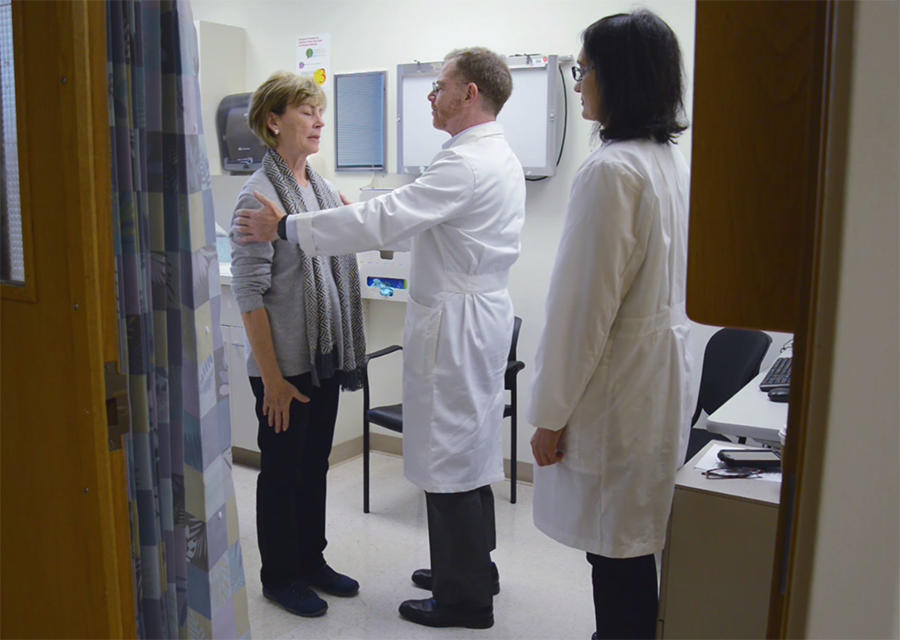The NCI-CONNECT Clinic brings together adults with the same rare brain or spine tumors and their caregivers to receive special services from doctors and nurses with experience treating rare cancers. The NCI-CONNECT Clinic is located at the NIH Clinical Center in Bethesda, Maryland and led by the NCI Center for Cancer Research’s Neuro-Oncology Branch (NOB). Patients at the NIH Clinical Center consent to participate in research studies (protocols) and are treated without charge. NIH does not bill for any services.
Patients are able to participate in the NCI-CONNECT Clinic if they have one of these rare brain or spine tumors and:
- They are newly diagnosed or have a recurrence and need to make a treatment decision.
- They are interested in a second opinion on follow-up care.
- They are interested in improving their care and the care of future patients.
To request a consultation, your primary doctor can first contact us at NCINOBReferrals@mail.nih.gov to discuss the best options for your care. Please understand that we are not accepting self-referrals or international patients at this time, but your care remains our top priority.
Our NCI-CONNECT doctors and nurses work with you and your primary doctor to collaborate on a comprehensive care plan that treats your brain or spine tumor and helps you cope with the physical and emotional aspects of your diagnosis. We also work closely with our colleagues in neuropathology, neurosurgery, radiation oncology, and radiology to provide personalized diagnosis and treatments that are free-of-charge.
Learn more about the NCI-CONNECT Clinic >
What items are needed for a consultation?
If you are a clinical provider referring a patient, please read the information below for reference. If you are a patient, your primary doctor will work with our patient care team to obtain the following information. Please do not send medical records or information unless you are directed by our patient care team.
- All available MRI and CT scans related to the brain or spine tumor diagnosis and corresponding radiology reports. The most recent MRI should be within 30 days of the appointment.
- Pathology material from the most recent surgery (including biopsies) sent in advance of the appointment. Receiving this material is critical to schedule the appointment.
- The most recent progress note from the patient’s treating physician. Other records, including surgery, radiation, and treatment summaries may be requested to determine a treatment plan or trial eligibility.
What are the costs?
- Consultations are free-of-charge.
- Treatments, tests, and other services at NIH are also free after a patient is accepted on study.
- NIH does not cover expenses for medical services at other facilities.
What items are needed for a consultation?
- All available MRI and CT scans related to the brain or spine tumor diagnosis and corresponding radiology reports. Most recent MRI should be within 30 days of the appointment.
- Pathology material from the most recent surgery (including biopsies) sent in advance of the appointment. Receiving this material is critical to schedule the appointment. Appointments can be scheduled as early as two weeks after the pathology material is received.
- Most recent progress note from the patient’s treating physician. Other records, including surgery, radiation, and treatment summaries may be requested to determine trial eligibility.

